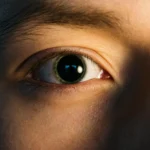The term alcoholic is frequently used to describe someone who drinks too much or too often. But having a problem with alcohol doesn’t necessarily make someone an alcoholic. The Diagnostic and Statistical Manual of Mental Disorders outlines the diagnostic criteria for alcoholism. Many might be surprised to learn what classifies as alcoholism (also referred to as an alcohol use disorder).
Across the nation, millions of Americans struggle with alcohol use disorders to varying degrees of severity. According to the National Institute on Alcohol Abuse and Alcoholism, more than seventeen million American adults (over the age of 18) have alcohol use disorders. Also, close to one million additional Americans between the ages of twelve and seventeen struggle with an adverse relationship with alcohol. When considering seeking help for alcohol, it is important to remember that alcoholism is not a problem that develops overnight. Alcoholism or an alcohol use disorder develops out of long-term alcohol abuse, and comprehensive addiction treatment is a key component of your journey to sobriety.
Is Alcohol Addictive?
Yes. The National Institute on Alcohol Abuse and Alcoholism notes that alcohol is the most commonly used addictive substance in the United States. There are both physical and psychological factors that make alcohol addictive. When you drink alcohol, it triggers the release of dopamine and endorphins in the brain. These chemicals are responsible for producing feelings of pleasure. They also act as natural painkillers in the body. Studies have also shown that genetic factors contribute to how someone’s body reacts to alcohol and their risk of developing an addiction.
Like other addictions, alcohol abuse arises out of behavior, thought patterns, and unhealthy coping patterns. Many people who struggle with chronic pain or symptoms of an undiagnosed (or diagnosed) mental health condition turn to alcohol as a way to dull their symptoms. This form of coping can lead to substance abuse and addiction. The individual turns to alcohol to manage pain and unpleasant symptoms while not realizing that alcohol leads to many of those symptoms.
What Are the Signs of Alcoholism?
There are eleven factors treatment providers use to analyze the presence of an alcohol use disorder. These factors address both the physical and psychological elements of alcohol addiction. When someone struggles with an alcohol use disorder or alcoholism, they will likely experience both physical and psychological effects. Without addiction treatment that helps the individual address the root causes of their relationship with alcohol, chronic alcohol abuse can quickly devolve into something severe and life-threatening. It is important to understand the warning signs that can help ensure early access to addiction treatment programs and mental health services. Some of the most common signs of alcohol abuse include:
- Wanting to drink alone or making excuses for “needing” to drink
- Increased voluntary isolation from family and friends
- Sudden mood changes or frequent mood swings
- Choosing alcohol over essential obligations such as work and family
- Changes in physical appearance and hygiene
- Cognitive difficulties, such as blackouts or difficulties with memory
How Alcohol Rehab in Redwood City, CA Can Help You Heal
Seeking addiction treatment at an alcohol rehab in Redwood City, CA, can help you learn more about addiction and how changing your thoughts and beliefs about alcohol can lead to sobriety and recovery. At Cal Recovery in Redwood City, California, our compassionate team of addiction treatment professionals will work with you to ensure your treatment plan is designed to meet your specific treatment needs and goals. Alcohol addiction can be challenging and sometimes dangerous to try and overcome alone. If you are ready to begin your journey to sobriety, contact the admission team today to learn more about how we can help you get started.




